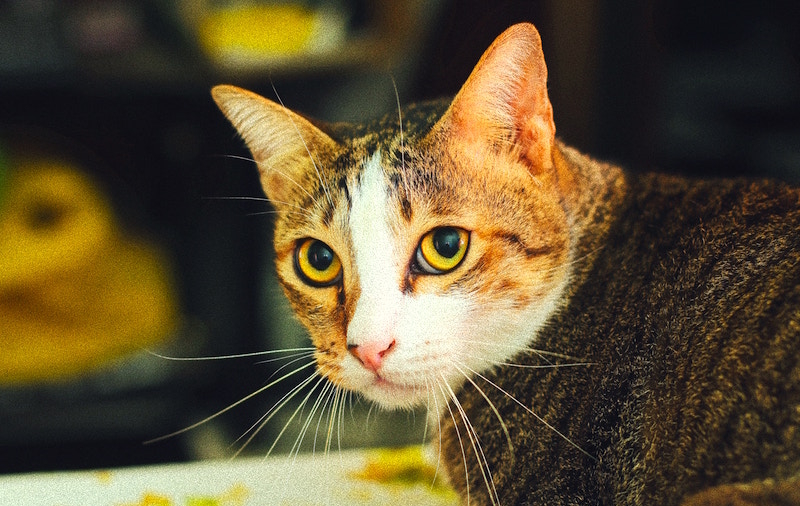Owners who make their pets ill as a result of feeding them a vegan diet risk breaking the law, which could result in a hefty fine or even jail time, the RSPCA in the UK has warned.
The warning came after vegan pet food and non-meat alternative foods were put on display at the National Pet Show in Birmingham in early November.
An RSPCA spokesman raised the organization’s concern over the new products because cats are classified to be strict carnivores.
“Cats are strict carnivores and depend on some very specific nutrients that are found in meat including taurine, vitamin A, and arachidonic acid so can become seriously ill if they are fed a vegetarian or vegan diet,” the spokesman told The Telegraph on Nov. 22.
The concern does not extend to dogs because dogs are generally classified as omnivores, which means that they can theoretically survive on a vegetarian diet.
“Under the Animal Welfare Act, the law requires an owner to take reasonable steps to ensure that all the pet’s needs are met,” he said.
“This includes a healthy diet, as well as providing suitable living conditions, ability to behave normally, appropriate company and protection from pain, suffering, injury and disease.”
A Severely Malnourished Cat
Marge Chandler, a clinical animal nutritionist and university lecturer based in Glasgow, told The Telegraph that she had to hospitalise a cat because it had become so weak from consuming a strict vegan diet. The cat came into her care unable to stand.
Chandler recounted how the cat was severely under-sized and had a substantial amount of fur missing. She did not release the cat until the owner said they would feed it a diet that included meat.
“Feeding an inappropriate or incomplete diet that doesn’t provide the animal with the nutrients it needs is a welfare issue—no matter what diet it is,” Chandler said.

The UK’s Vegetarian Society said that cats are regarded as obligate carnivores because in the wild they would not be able to survive without eating meat.
“Cats are unable to produce taurine and arachidonic acid which are essential nutrients provided by meat. Deficiencies can cause blindness and death if untreated,” the charity’s website said.
However, the charity points out that for cats in domestic environments, there are now “commercial vegetarian foods available that contain synthetic versions of essential nutrients.”
The onus is upon the cat owner to ensure the cat has a diet “suitable for its age, lifestyle, and healths status,” the charity said.
“We would recommend seeking advice from a vet before changing your cat’s diet,” the charity website said. “New foods need to be introduced gradually over a number of days and the animal’s health carefully monitored.”
Monitor, Monitor, Monitor
In an article titled “How to Safely Veganise Your Cat and Dog (pdf),” Andrew Knight, a prominent veterinarian and scientist based at the University of Winchester, says that the critical issue is whether the animal is consuming the necessary nutrients to sustain itself, rather than whether the food is meat or plant-based.
“Cats, dogs, and indeed all species, have requirements for specific dietary nutrients, not ingredients.

“There is no scientific reason why a diet comprised only of plant, mineral, and synthetically based ingredients cannot be formulated to meet all of the palatability, nutritional, and bioavailability needs of the species for which they are intended,” Knight said in the article.
Knight said that owners who feed their cats a vegan diet regularly monitor their cat’s urine acidity, alongside general health checks.
“Regular urine acidity monitoring is also important to detect urinary alkalinisation, with its consequent potential for urinary stones, blockages, and infections, that may result from a vegan diet, in a small minority of cases,” he wrote.
“Urinary alkalinisation may be corrected via a range of dietary additives. Further information can be found at www.vegepets.info,” he added.
Knight also noted that studies have shown that some pet foods, meat-based or vegan alike, are not always formulated to completely fulfil an animal’s nutritional requirements over an extended period.
As such, he suggests that pet owners gradually rotate their pets onto different pet food brands or diets every few months, “in the hope that any deficiencies will at least differ between different diets.”
But as always, there remains a variety of professional opinions and personal experiences from cat owners who have tried keeping their pets to a vegan diet, which together seem to suggest that one size does not fit all, according to an article in Vegan Motivation.
At the end of the day, “A plant-based diet is not what nature intended for cats, and can ultimately be detrimental to health—if done incorrectly,” the article said.

